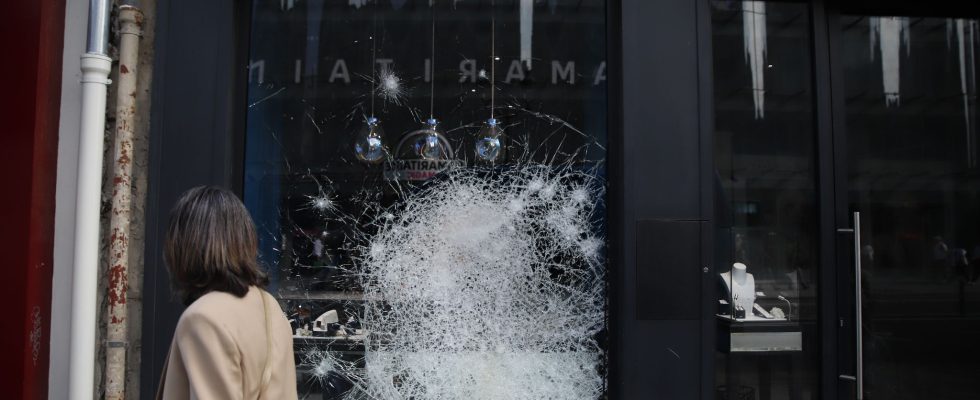Adam Smith already underlined that, without respected public order, there is no effective freedom. The founder of modern economics wrote in The Wealth of Nations (1776): “The first duty of the sovereign is to protect society from violence and injustice […]. [Son] second duty [est] to protect, as far as possible, each member of society against the injustice or oppression of any other member of this society.” One would be tempted to add: “Without public order being respected, there is no has no lasting prosperity.”
The riots will obviously have a cost for the French economy. The most immediate consequences are borne by businesses, which are inflicted with a triple penalty: the cost of repairing the damage caused; the temporary closure of stores; trauma suffered by employees. This same trade sector, which has already been hit by the yellow vests movement and the demonstrations against the pension reform, is also weakened by an endogenous economic development: inflation leads to a significant drop in food consumption in volume. But most businesses were suffering even before the riots. Let’s take a concrete example, that of fast food, a very present sector in our suburbs. Between the rise in energy prices, the rise in wages, the cost of standards – the end of disposable tableware which requires investment – and rents, margins have suddenly fallen in 2022. On this come the riots. Frankly, there is reason to complain about the pros of the sandwich.
Save traders the bureaucratic nightmare
Tourism will not be better off. Tour operators are reporting cancellations for this summer, particularly from Asia, the attack on a Chinese tourist bus in Marseille having been widely – rightly – reported by the press. Jean-François Rial, who heads the Paris tourist office and Voyageurs du monde, mentions 20 to 25% cancellations among foreign tourists. Infuriating, in a country where we would like the latter, often passing through, to stay longer and circulate throughout France instead of being confined to Paris and the Côte d’Azur.
Insurers will bear most of the losses, which will not amount to hundreds of millions of euros as in 2005, but probably billions. Riots are not covered as such, but vandalism and business interruption are covered in 80 to 90% of cases. The remaining burden for small traders is nonetheless significant, even as their margins are under pressure. Insurers seem ready to speed up compensation. At the very least, the government and the cities must agree to simplify the authorizations required for the renovation of shop windows. Traders have the blues enough. Let us spare them, at least for a few weeks, the French bureaucratic nightmare.
Neighborhoods benefit from a squared redistribution
The cost to the taxpayer should be moderate unless the executive falls into a huge trap: buy social peace by pouring more public money into our “QPV”, the “priority neighborhoods of the city”, according to our terminology administration. Our country has implemented since the Borloo law of 2003 an excellent “national urban renewal plan”. Some cities like Meaux (Seine-et-Marne), under the impetus of its mayor, Jean-François Copé, have been transformed thanks to this system. Our QPVs benefit from dozens of actions, targeted or not, and the duplication of classes – an excellent measure in this case. It is difficult to quantify all these devices, but we bet that it is about tens of billions of euros.
These policies are implemented in one of the most redistributive countries in the world. This system of public transfers automatically benefits the neighborhoods most in difficulty. The QPV are therefore subject to a squared redistribution. Our politicians have long believed that peace and prosperity can be bought with public money. May these riots have made them realize that reality is more complex. Money to reduce class sizes or give bonuses to teachers: yes! To destroy bars and replace them with houses: yes! To finance video surveillance: yes! But yet another “suburban plan” to cowardly calm the anger: no.
* economist and essayist
